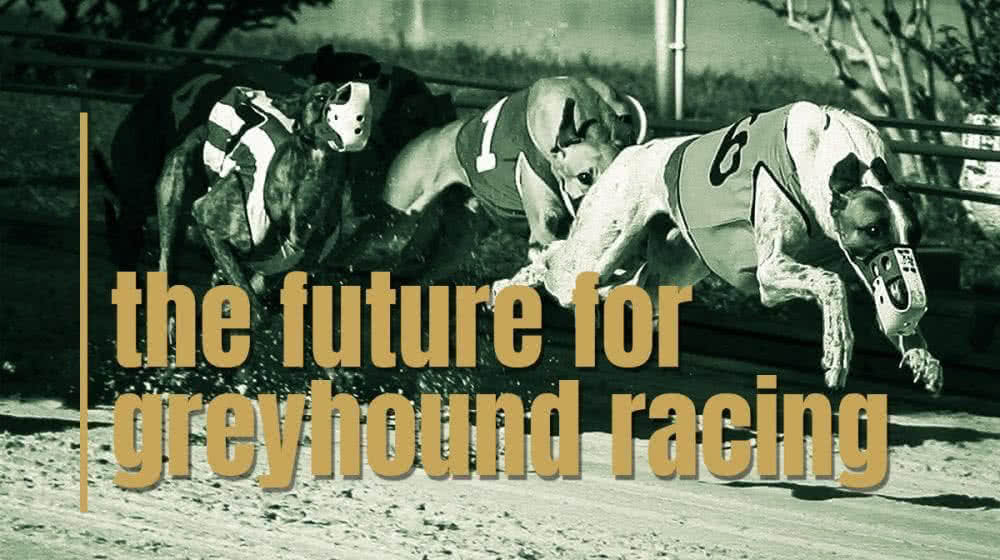Does Greyhound Racing Have A Future in New Zealand?
Greyhound Racing NZ (or dog racing) has been a popular part of New Zealand’s racing culture for over a century, with regular races held at tracks around the country. It has provided entertainment for many and has been a crucial source of revenue for the racing industry.
This article will explore the current and future state of greyhound racing in New Zealand. Keep reading to explore the arguments for and against the sport, including potential policy changes and reforms, to see if it has a future on Kiwi soil.
History of Greyhound Racing in New Zealand
Greyhound racing is a popular industry in New Zealand. There are six tracks and 10 racing clubs operating throughout the country, including in Auckland, Christchurch, and Palmerston North. Greyhound Racing New Zealand (GRNZ) manages and affiliates these clubs.
New Zealand greyhound racing was born out of coursing, a sport that involved hunting game animals like hares with greyhounds using sight rather than scent.
Governor George Grey brought coursing (and subsequently the New Zealand Federation of Coursing Clubs) to New Zealand in 1868 as a means of controlling the growing population of hares that were impacting NZ land. In 1934, greyhound racing was introduced, and experiments with artificial hares began later that year with the ‘Tin Hare’, a mechanical lure on a rail around an oval track.
Thus, the seeds of the greyhound industry were planted.
The first official greyhound race meeting took place in 1948 at Addington Park’s Christchurch Greyhound. Racing Club, marking the birth of modern commercial greyhound racing in New Zealand.
In 1954, coursing was banned and the New Zealand Greyhound Racing Association (NZGR) was formed. In 1970, betting became legal in New Zealand. That same year, the Duke of Edinburgh gifted a silver collar during his visit to Manukau with Queen Elizabeth II.
During the late 1970s, totalisator and off-site betting were granted, which allowed the industry to make profits and improve tracks. The NZGRA became the GRNZ in 2009.
Nowadays, the key players that govern New Zealand Greyhound Racing include the New Zealand Racing Board, the Ministry of Primary Industries, the Greyhound Protection League, and Greyhound Racing New Zealand. GRNZ largely governs the industry and organises activities such as the Southern Trust New Zealand Cup.
Current State of the Greyhound Racing Industry
The greyhound racing industry in New Zealand is a polarising topic. Concerns over animal welfare are calling for the industry to be abolished.
Still, the sport continues, and a racing dog ranges in price from $450 to $1500 (NZD) depending on the breed and importation costs from Australia. TAB racing channels show every greyhound race in New Zealand live, and most punters watch from the comfort of their homes or TAB outlets, betting by phone or via sports betting sites.
All dogs must also be weighed on race day, or the trainers responsible will be fined. As a result of the backlash, many former racing greyhounds are being adopted through re-homing facilities like “Greyhounds as Pets,” which ensure they are suitable for family life.
Independent Review
Independent welfare reviews in 2013 and 2017 found multiple issues. This included population management, track conditions, and high rates of injury and euthanasia. In response, the government banned live or dead animal baiting in 2017.
Despite regulatory efforts and progress, reports of neglect, mistreatment, and doping have persisted. In 2022, a major breeder was found to have neglected and mistreated greyhounds. A mother and daughter were charged in March 2023 for doping a greyhound with methamphetamine.
The withdrawal of public support from businesses, including Toyota and Ray White, is a major challenge for the industry. There is also inconsistency in the training of greyhounds among trainers.
All stakeholders are regulated under the Racing Act of 2003 and the 2020 Racing Industry Act. The Racing Integrity Board (RIB) approves the Rules of Racing Committee, which guide all processes at GRNZ.
Arguments for and against Greyhound Racing
There are a number of arguments both for and against greyhound racing in New Zealand. Supporters maintain that the sport is an economic boost that creates jobs, with $421 million wagered on New Zealand races in 2018.
Supporters also claim greyhound racing is a heavily government-regulated sport that ensures dog welfare.
The Arguments Against
On the other hand, opponents claim the sport is inherently cruel to dogs and leads to injuries, trauma, and even death.
They criticise the breeding and culling practices that prioritise speed over animal health and welfare. Prize money can exceed tens of thousands of dollars, causing many trainers to push the animals past their capabilities to get the fastest dogs.
The sport is also facing increased scrutiny due to cases of positive tests for doping and mistreatment. From an animal welfare perspective, these recent doping allegations have resulted in legal action and led to a call to ban the sport.

What’s Next for Greyhound racing?
The future of greyhound racing in New Zealand is uncertain. Trends indicate a decline in popularity and public support. The decline in support is largely due to anti-greyhound racing associations lobbying for social and political support to shut down the industry.
In August 2021, a petition with 37,700 signatures calling to ban greyhound racing in New Zealand was sent to the Minister of Racing and Associate Minister of Agriculture.
In September 2021, the previous minister of racing announced that the greyhound racing industry was ‘formally on notice’ until the end of 2022 for repeatedly failing to improve its welfare standards.
The SPCA is calling for an end to the sport, and the NZGR’s failure to protect animals suggests that the industry’s days are numbered.
Is This The End of The Leash?
Greyhound racing in New Zealand is in trouble as the government warns and cites issues with kennels. In 2017, the Hansen review assessed possible changes to greyhound racing in New Zealand.
The government is now overseeing the implementation of recommendations, but dogs are still dying, and the industry is still profitable. The future of greyhound racing in New Zealand seems bleak, and reforms may not save it.

Lincoln is an expert in sports betting. With his skill and passion for trying our new brands in the iGaming industry, he frequently reviews sports betting sites and writes news about sports betting. Being a former sports trader, there’s not much he doesn’t know when it comes to sports betting.
Read more about the author